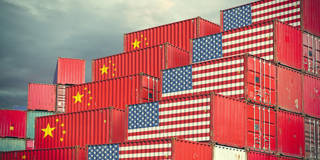The United States government's assertion that the recent depreciation of the renminbi amounts to currency manipulation is not true. It would be more correct to say that the Chinese authorities gave in to market pressure – the immediate source of which was US President Donald Trump’s announcement of new tariffs on Chinese goods.
CAMBRIDGE – The trade war between the United States and China is heating up again, with US President Donald Trump abruptly announcing plans to impose a 10% tariff on the $300 billion worth of imports from China that he had so far left untouched. The Chinese authorities then allowed their currency, the renminbi, to fall below the symbolic threshold of CN¥7 per US dollar. The Trump administration promptly responded by naming China a “currency manipulator” – the first time the US had done that to any country in 25 years. Pundits declared a currency war, and investors immediately sent global stock markets lower.

CAMBRIDGE – The trade war between the United States and China is heating up again, with US President Donald Trump abruptly announcing plans to impose a 10% tariff on the $300 billion worth of imports from China that he had so far left untouched. The Chinese authorities then allowed their currency, the renminbi, to fall below the symbolic threshold of CN¥7 per US dollar. The Trump administration promptly responded by naming China a “currency manipulator” – the first time the US had done that to any country in 25 years. Pundits declared a currency war, and investors immediately sent global stock markets lower.